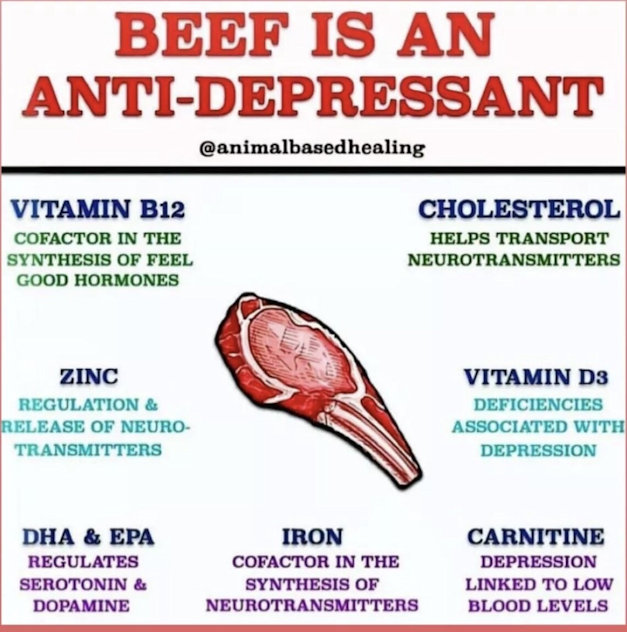- Joined
- Jul 10, 2008
- Messages
- 66,347
- Points
- 113
https://www.antidepressantrisks.org/
How Effective Are Antidepressants?
Opinion is divided as to how well antidepressants work.There is little data on long term outcomes as the drugs are only tested for 6-8 weeks by the pharmaceutical companies that make them.
Data on short term effectiveness is also limited because drug companies are not obliged to publish all of their trials.
In their guide to taking antidepressants The Royal College of Psychiatrists state: 'Overall research shows antidepressants help to reduce the symptoms of moderate and severe depression in adults. But different people have very different experiences with these medications.' Link
Some clinicians believe they are no more effective than a placebo.
In 2008 Dr Irving Kirsch from Harvard Medical School and a group of researchers acquired the unpublished trials for six antidepressants using the Freedom of Information Act (U.S.). They discovered that the drugs produced a small but clinically meaningless improvement in mood compared to a placebo for mild to moderate depression. Antidepressants and the Placebo Effect.
Other studies have reached a range of differing conclusions.
More than half of patients will experience negative side effects from taking antidepressants.
The NHS, Mayo Clinic and others list these as:
- agitation
- sickness
- indigestion and stomach aches
- diarrhoea, constipation
- insomnia
- headaches
- blurring of vision
- drowsiness
- problems passing urine
- dry mouth
- weight gain
- excessive sweating
- low sex drive
- heart rhythm problems
Because withdrawal from antidepressants can be so hard, millions will have to put up with these side effects for life. For some who manage to stop the sexual problems can get worse and become permanent.
Serotonin syndrome is a potentially life threatening condition that can be triggered by a single dose of an antidepressant. Symptoms can include confusion, agitation, muscle twitching, sweating, shivering, diarrhoea, fits, unconsciousness and psychosis.
The NHS and similar websites around the world advise that if you experience any of the above symptoms of serotonin syndrome you should stop taking the medicine and seek immediate advice from your GP, specialist or emergency services.
A very common sign that someone is having a dangerous reaction to medication is that they develop a condition called akathisia. This may sometimes show as an inability to keep still so the person paces frenetically and is unable to sleep.
The feeling of being compelled to keep moving has been described as torturous.
One sufferer said of akathisia, "Death can be a welcome result".
Even more common is an intense inner restlessness and an emotional turmoil without any motor movements.
Akathisia can lead sufferers to harm and kill themselves or others.
The most dangerous time for those who react adversely to antidepressants is the first few weeks after going on them, around any change of dose (up or down), during and after withdrawal.
Hooked on Antidepressants - The Evidence
There is now evidence that millions are trapped into taking antidepressants indefinitely because withdrawal symptoms are so severe.According to a review of studies led by the University of Roehampton more than half (56%) of people who stopped or reduced their intake of antidepressants experienced withdrawal symptoms, with almost half of these people (46% ) reporting symptoms as severe.
These include insomnia, stomach problems, headaches, panic attacks, anxiety, suicidal thoughts, mania, depersonalisation and depression.
In some cases reactions are so severe that patients report 'brain zaps' - these are electrical shock sensations in the brain which may extend down the body.
Withdrawal effects can be so debilitating that many people are unable to function and some people simply cannot stop.
Common Side Effects
Extreme Reactions
Serotonin Syndrome
Extreme Outcomes
Akathisia
Suicide

JON
Jon took his own life days after taking citalopram.Click here to read about Jon.
Homicide and Violence
Kurt served 24 years for killing his father after a violent reaction to Prozac.Click here to read Kurt's story.


Kurt's story
KURT
It can take many months or years to come off antidepressants safely.In
recognition of this problem, Public Health England has recommended a
national helpline to help people withdraw from antidepressants.
The Royal College of Psychiatrists have published a guide - Stopping Antidepressants.
With thanks to MISSD


Dr. Ed White's story
Dr. Ed White was a co-founder of this website. He suffered debilitating withdrawal effects and took his life in October 2021
Click here to read Ed's story.
ED
Mission
- People can suffer debilitating side effects that may continue after they stop the drug.
- Millions of people have no choice but to take antidepressants for life simply because the withdrawal effects are so severe.
- Around 1 in 100 people on antidepressants can become violent or suicidal.
"While these drugs help some people in the short term, there is growing evidence that long term use leads to worse outcomes and many patients report devastating persistent withdrawal and other negative effects"
2019 British Parliamentary Inquiry
Warning
The most extreme reactions to antidepressants, including suicide and violence, are more common when the dosage of an antidepressant changes or when starting or discontinuing the medication. Sometimes these reactions are caused by switching from one type of antidepressant to another. Anyone considering altering the dosage of their medication or withdrawing from it should take medical advice first from a doctor or suitably qualified practitioner. Some doctors are unaware of these issues so you may need to find one who recognises the problems and can support you.
Although some of our contributors and team members may work as practitioners, all of the final editorial decisions related to the content of this website have been made by non-medical people and are provided for general educational purposes only. None of the information and resources on the Antidepressant Risks website or provided in any communication constitutes or should be seen as medical, mental health, counselling, clinical or professional advice of any kind. For a full copy of our disclaimer please click here.
[email protected]




